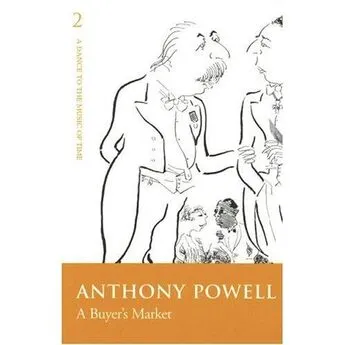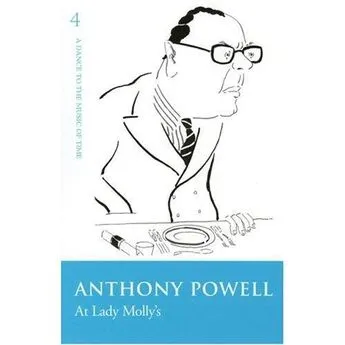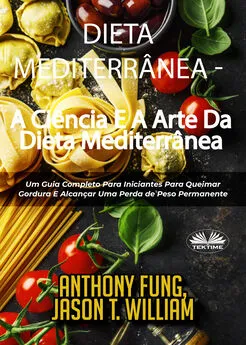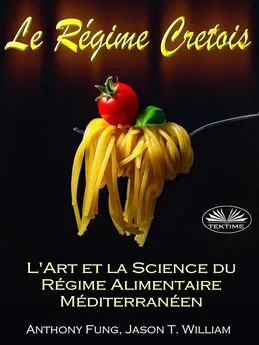Anthony Trollope - Autobiography of Anthony Trollope
- Название:Autobiography of Anthony Trollope
- Автор:
- Жанр:
- Издательство:неизвестно
- Год:неизвестен
- ISBN:нет данных
- Рейтинг:
- Избранное:Добавить в избранное
-
Отзывы:
-
Ваша оценка:
Anthony Trollope - Autobiography of Anthony Trollope краткое содержание
EBook of Autobiography of Anthony Trollope by Anthony Trollope (www.anthonytrollope.com)
Autobiography of Anthony Trollope - читать онлайн бесплатно ознакомительный отрывок
Интервал:
Закладка:
expected of him that he shall not marry any young lady out of it.
I had given offence, and I was made to feel it.
There has taken place a great change in Ireland since the days in
which I lived at Banagher, and a change so much for the better,
that I have sometimes wondered at the obduracy with which people
have spoken of the permanent ill condition of the country. Wages
are now nearly double what they were then. The Post Office, at any
rate, is paying almost double for its rural labour,--9s. a week
when it used to pay 5s., and 12s. a week when it used to pay 7s.
Banks have sprung up in almost every village. Rents are paid with
more than English punctuality. And the religious enmity between
the classes, though it is not yet dead, is dying out. Soon after I
reached Banagher in 1841, I dined one evening with a Roman Catholic.
I was informed next day by a Protestant gentleman who had been
very hospitable to me that I must choose my party. I could not sit
both at Protestant and Catholic tables. Such a caution would now
be impossible in any part of Ireland. Home-rule, no doubt, is a
nuisance,--and especially a nuisance because the professors of the
doctrine do not at all believe it themselves. There are probably
no other twenty men in England or Ireland who would be so utterly
dumfounded and prostrated were Home-rule to have its way as the
twenty Irish members who profess to support it in the House of
Commons. But it is not to be expected that nuisances such as these
should be abolished at a blow. Home-rule is, at any rate, better
and more easily managed than the rebellion at the close of the
last century; it is better than the treachery of the Union; less
troublesome than O'Connell's monster meetings; less dangerous than
Smith O'Brien and the battle of the cabbage-garden at Ballingary,
and very much less bloody than Fenianism. The descent from O'Connell
to Mr. Butt has been the natural declension of a political disease,
which we had no right to hope would be cured by any one remedy.
When I had been married a year my first novel was finished. In
July, 1845, I took it with me to the north of England, and intrusted
the MS. to my mother to do with it the best she could among the
publishers in London. No one had read it but my wife; nor, as far
as I am aware, has any other friend of mine ever read a word of
my writing before it was printed. She, I think, has so read almost
everything, to my very great advantage in matters of taste. I am sure
I have never asked a friend to read a line; nor have I ever read a
word of my own writing aloud,--even to her. With one exception,--which
shall be mentioned as I come to it,--I have never consulted a friend
as to a plot, or spoken to any one of the work I have been doing.
My first manuscript I gave up to my mother, agreeing with her that
it would be as well that she should not look at it before she gave
it to a publisher. I knew that she did not give me credit for the
sort of cleverness necessary for such work. I could see in the
faces and hear in the voices of those of my friends who were around
me at the house in Cumberland,--my mother, my sister, my brother-in-law,
and, I think, my brother,--that they had not expected me to come
out as one of the family authors. There were three or four in the
field before me, and it seemed to be almost absurd that another
should wish to add himself to the number. My father had written
much,--those long ecclesiastical descriptions,--quite unsuccessfully.
My mother had become one of the popular authors of the day. My
brother had commenced, and had been fairly well paid for his work.
My sister, Mrs. Tilley, had also written a novel, which was at the
time in manuscript--which was published afterwards without her name,
and was called Chollerton. I could perceive that this attempt of
mine was felt to be an unfortunate aggravation of the disease.
My mother, however, did the best she could for me, and soon reported
that Mr. Newby, of Mortimer Street, was to publish the book. It
was to be printed at his expense, and he was to give me half the
profits. Half the profits! Many a young author expects much from such
an undertaking. I can, with truth, declare that I expected nothing.
And I got nothing. Nor did I expect fame, or even acknowledgment.
I was sure that the book would fail, and it did fail most absolutely.
I never heard of a person reading it in those days. If there was
any notice taken of it by any critic of the day, I did not see it.
I never asked any questions about it, or wrote a single letter on
the subject to the publisher. I have Mr. Newby's agreement with me,
in duplicate, and one or two preliminary notes; but beyond that I
did not have a word from Mr. Newby. I am sure that he did not wrong
me in that he paid me nothing. It is probable that he did not sell
fifty copies of the work;--but of what he did sell he gave me no
account.
I do not remember that I felt in any way disappointed or hurt. I
am quite sure that no word of complaint passed my lips. I think I
may say that after the publication I never said a word about the
book, even to my wife. The fact that I had written and published
it, and that I was writing another, did not in the least interfere
with my life, or with my determination to make the best I could of
the Post Office. In Ireland, I think that no one knew that I had
written a novel. But I went on writing. The Macdermots was published
in 1847, and The Kellys and the O'Kellys followed in 1848. I
changed my publisher, but did not change my fortune. This second
Irish story was sent into the world by Mr. Colburn, who had
long been my mother's publisher, who reigned in Great Marlborough
Street, and I believe created the business which is now carried on
by Messrs. Hurst & Blackett. He had previously been in partnership
with Mr. Bentley in New Burlington Street. I made the same agreement
as before as to half profits, and with precisely the same results.
The book was not only not read, but was never heard of,--at any
rate, in Ireland. And yet it is a good Irish story, much inferior
to The Macdermots as to plot, but superior in the mode of telling.
Again I held my tongue, and not only said nothing but felt nothing.
Any success would, I think, have carried me off my legs, but I was
altogether prepared for failure. Though I thoroughly enjoyed the
writing of these books, I did not imagine, when the time came for
publishing them, that any one would condescend to read them.
But in reference to The O'Kellys there arose a circumstance which
set my mind to work on a subject which has exercised it much ever
since. I made my first acquaintance with criticism. A dear friend
of mine to whom the book had been sent,--as have all my books,--wrote
me word to Ireland that he had been dining at some club with a man
high in authority among the gods of the Times newspaper, and that
this special god had almost promised that The O'Kellys should be
noticed in that most influential of "organs." The information moved
me very much; but it set me thinking whether the notice, should it
ever appear, would not have been more valuable, at any rate, more
honest, if it had been produced by other means;--if, for instance,
the writer of the notice had been instigated by the merits or demerits
of the book instead of by the friendship of a friend. And I made
up my mind then that, should I continue this trade of authorship,
I would have no dealings with any critic on my own behalf. I would
neither ask for nor deplore criticism, nor would I ever thank a
critic for praise, or quarrel with him, even in my own heart, for
censure. To this rule I have adhered with absolute strictness, and
this rule I would recommend to all young authors. What can be got
by touting among the critics is never worth the ignominy. The same
may, of course, be said of all things acquired by ignominious means.
But in this matter it is so easy to fall into the dirt. Facilis
descensus Averni. There seems to be but little fault in suggesting
to a friend that a few words in this or that journal would be of
service. But any praise so obtained must be an injustice to the
public, for whose instruction, and not for the sustentation of the
author, such notices are intended. And from such mild suggestion
the descent to crawling at the critic's feet, to the sending of
presents, and at last to a mutual understanding between critics
and criticised, is only too easy. Other evils follow, for the
denouncing of which this is hardly the place;--though I trust I
may find such place before my work is finished. I took no notice
of my friend's letter, but I was not the less careful in watching
The Times. At last the review came,--a real review in The Times. I
learned it by heart, and can now give, if not the words, the exact
purport. "Of The Kellys and the O'Kellys we may say what the master
said to his footman, when the man complained of the constant supply
of legs of mutton on the kitchen table. Well, John, legs of mutton
are good, substantial food;' and we may say also what John replied:
'Substantial, sir,--yes, they are substantial, but a little coarse.'"
That was the review, and even that did not sell the book!
From Mr. Colburn I did receive an account, showing that 375 copies
of the book had been printed, that 140 had been sold,--to those,
I presume, who liked substantial food though it was coarse,--and
that he had incurred a loss of (pounds)63 19S. 1 1/2d. The truth of the
account I never for a moment doubted; nor did I doubt the wisdom
of the advice given to me in the following letter, though I never
thought of obeying it--
"GREAT MARLBOROUGH STREET,
November 11, 1848.
"MY DEAR SIR,--I am sorry to say that absence from town and other
circumstances have prevented me from earlier inquiring into the
results of the sale of The Kellys and the O'Kellys, with which the
greatest efforts have been used, but in vain. The sale has been,
I regret to say, so small that the loss upon the publication is
very considerable; and it appears clear to me that, although in
consequence of the great number of novels that are published, the
sale of each, with some few exceptions, must be small, yet it is
evident that readers do not like novels on Irish subjects as well
as on others. Thus, you will perceive, it is impossible for me to
give any encouragement to you to proceed in novel-writing.
"As, however, I understand you have nearly finished the novel La Vendee,
perhaps you will favour me with a sight of it when convenient.--I
remain, etc., etc.,
"H. COLBURN."
This, though not strictly logical, was a rational letter, telling
a plain truth plainly. I did not like the assurance that "the
greatest efforts had been used," thinking that any efforts which
might be made for the popularity of a book ought to have come from
the author;--but I took in good part Mr. Colburn's assurance that
he could not encourage me in the career I had commenced. I would
have bet twenty to one against my own success. But by continuing
Читать дальшеИнтервал:
Закладка:








